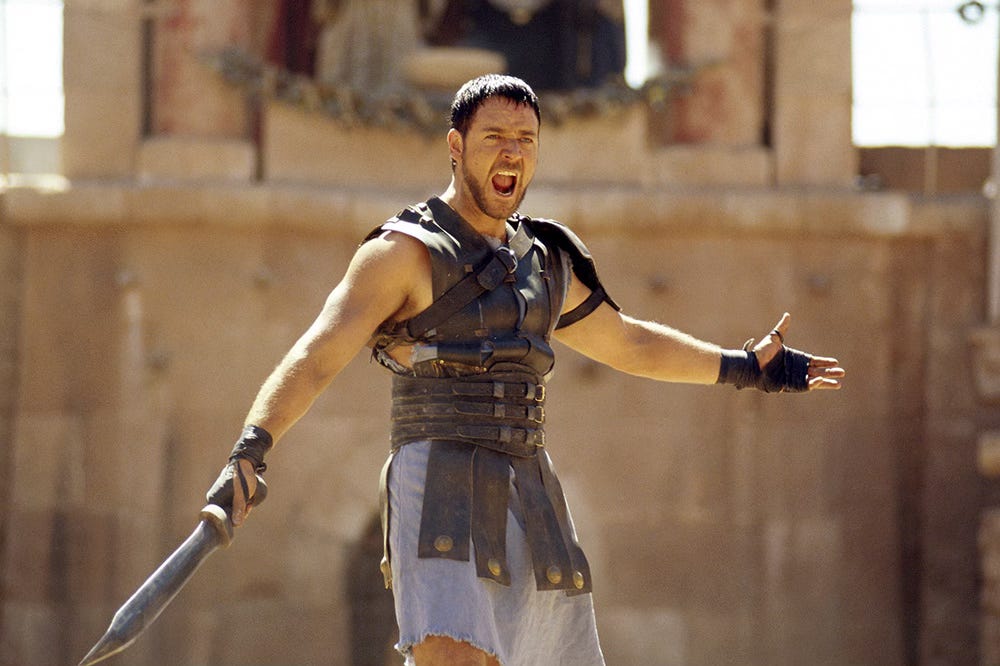"Gladiator II" Faced A Much Bigger Problem Than Maximus Being Dead
A very long review of a movie I have been waiting decades for.
The first Gladiator had a famously troubled production. Even after years of development, filming began with an unfinished script. One of the actors, Oliver Reed, died in a bar before finishing all of his scenes. The knives were out in Hollywood even before it had completed photography because sword-and-sandal epics, once a blockbuster mainstay, had not succeeded in decades.
But then people actually saw the film, and wouldn’t you know it, it was wonderful. Gladiator became a phenomenon. It was nominated for 12 Academy Awards, winning five, including Best Picture. It was the second-highest-grossing film of 2000. Russell Crowe, who had only been a movie star for a few years, won an Oscar and briefly became one of the biggest stars in the world. To this day, quotes from the film are standard at sporting events.
When a movie is that successful, the pressure to make a sequel is intense. But for most of the last 20 years, a sequel to Gladiator seemed unlikely or downright impossible. Nowadays, every big-budget would-be blockbuster is a potential franchise, and studios work hard to ensure original films have someplace to go in a sequel if they perform well. But this was not the case in 2000. Gladiator, even more than most blockbusters, was not made with sequels in mind.
I don’t actually think Ridley Scott believes this. There is a bigger problem than Maximus' dying at the end of the first one.
The main problem, according to Ridley Scott, is that Russell Crowe’s Maximus dies at the end. I don’t actually think Ridley Scott believes this because, as I’ll explain, there is a bigger problem, but it certainly was a problem.



